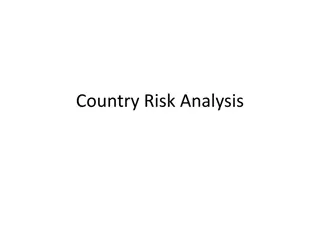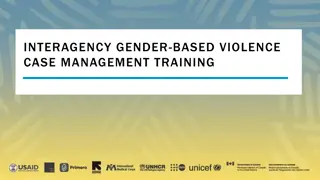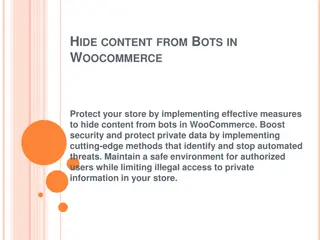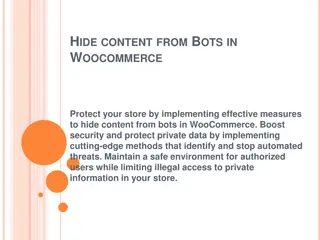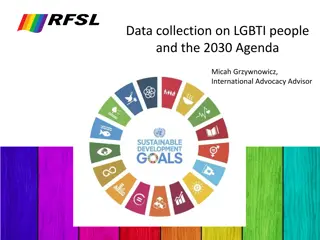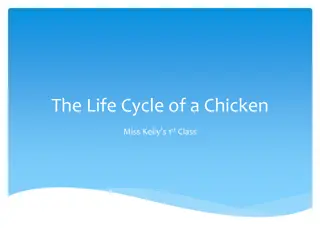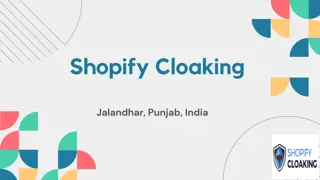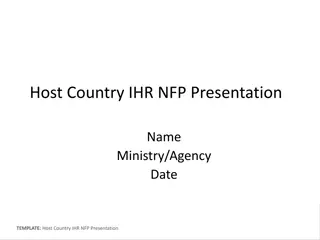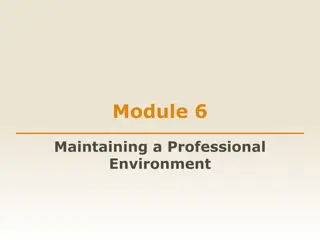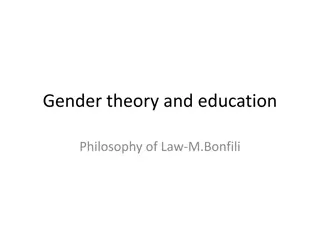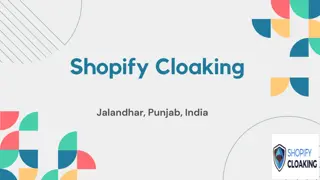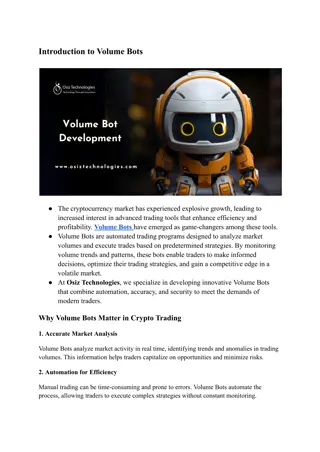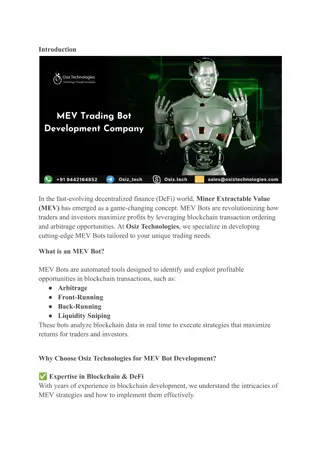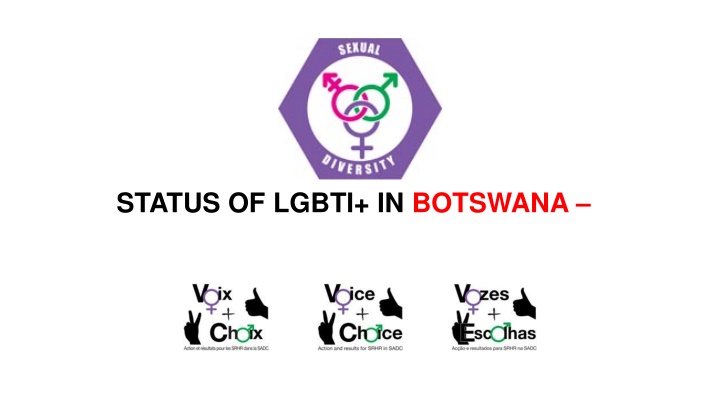
LGBTQ+ Rights in Botswana: Legal Status, Implementation, and Demands
Explore the current legal status of the LGBTQ+ community in Botswana, including criminalization laws, implementation challenges, demands for decriminalization of consensual same-sex acts, and the status of the ongoing strategic litigation campaign led by LEGABIBO. Learn about the discriminatory laws, positive measures against discrimination, and the push for gradual changes in gender recognition and adoption rights. Stay informed on the progress and challenges faced by the LGBTQ+ community in Botswana.
Download Presentation

Please find below an Image/Link to download the presentation.
The content on the website is provided AS IS for your information and personal use only. It may not be sold, licensed, or shared on other websites without obtaining consent from the author. If you encounter any issues during the download, it is possible that the publisher has removed the file from their server.
You are allowed to download the files provided on this website for personal or commercial use, subject to the condition that they are used lawfully. All files are the property of their respective owners.
The content on the website is provided AS IS for your information and personal use only. It may not be sold, licensed, or shared on other websites without obtaining consent from the author.
E N D
Presentation Transcript
Current legal status Criminalisation Penal code 164 (a) 164 (c ) 165 and 167 Unnatural Acts - 164 (a) - Any person who (a) has carnal knowledge of any person against the order of nature; 164 (c ) - (c) permits any other person to have carnal knowledge of him or her against the order of nature; is guilty of an offence and is liable to imprisonment for a term not exceeding seven years. Section 165 - attempts to commit unnatural acts - Intention Section 167 - indecent practices between persons Laws against registration Registrar of Societies Act Section 7(2) LEGABIBO objectives are contrary to section 7(2) of the Societies Act Laws relating to nuisance , public disorder , cross dressing , impersonation used to target, blackmail, harrass and arrest LGBTI Section 16 National registration Act - mismatching ID documents with gender Identity nit being able to change the gender marker Third Gender in IDs for Gender non-conforming Constitution - Promotes non-discrimination - Section 3 - listed grounds for non-discrimination, do mention SOGIESC used as grounds of discrimination
How are the laws implemented? Assumed to criminalise being LGBT (excluding intersex people) being gay being homosexual. The section however criminalises sex termed as sex against the order of nature Used grounds for refusal of LEGABIBO registration the country does not recognised homosexuals Letter from Registrar of Societies Cases Kanane (2003) & Zulu (2016) Same-sex sexual assaults and rape cases addressed as sodomy Positive laws Employment Act of 2010 Prohibits discrimination on the basis of Sexual orientation Excludes Gender Identity HIV policies National strategic framework
What are you demanding? Dicriminalisation of Consensual same-sex sexual acts Does it include same sex marriage? No, our strategy is to based on incremental Approaches Does it include provisions on changing transgender identities? Change Gender Marker to recognise/match gender Identity Does it include same sex couples adopting children? _ Not Yet
What is the status of the campaign? Status of the campaign Strategic Litigation A case is before the courts LEGABIBO is an Amicus Hearing was on 14thMarch Judgement 11thJune - The case is used as part of community mobilisation & Movement building
Key stakeholders Name the different stakeholders working on the issues and their roles LGBTI Community Takes priority NGO s in the LGBTI Sector SALC TS Human Rights Lawyers - Movement Partners locally, regionally and internationally this is our movement, taknig action and supporting us (ARASA, ILGA/PAI, AMSHER, Iranti-Org, Stonewall, TCEN, COC, Outright International, Positive vibes)
Coordination Are there any coordination structures in place? How does it work? No Are there joint NGO/government consultative structures in place? How does it work? KP Technical Working group Meets quarterly focused on HIV
LGBTI+ and SRHR Where do LGBTI+ communities access SRHR services? NGOs BOFWA, Tebelopele, LEGABIBO & other NGOs doing Pepfar and Global Fund programs Are SRHR services available specifically for LGBTI+ communities? - Limited
Key SRHR challenges Services? Stigma & discrimination non-availability of prevention comodities Lack of Attitudinal change of HCW MOE not allowing distribution of condoms in schools No access to ART for foriegners WSW excluded Policies? Criminalisation - No right to health Rape & sexual offences Where is SRHR budget? Non-availability of safe & legal abortion Non- availability of Hormonal therapy for transgender persons
LGBTI+ and SRHR campaigns What initiatives are in place to address the challenges? - Challenging criminalisation - Access to HIV services for MSM
How can others support? Advocacy at different levels Open spaces for advocacy and lobbying Follow country agenda Respect country contexts Make available research data. Donors Fund and existing agenda, don t create a new one



